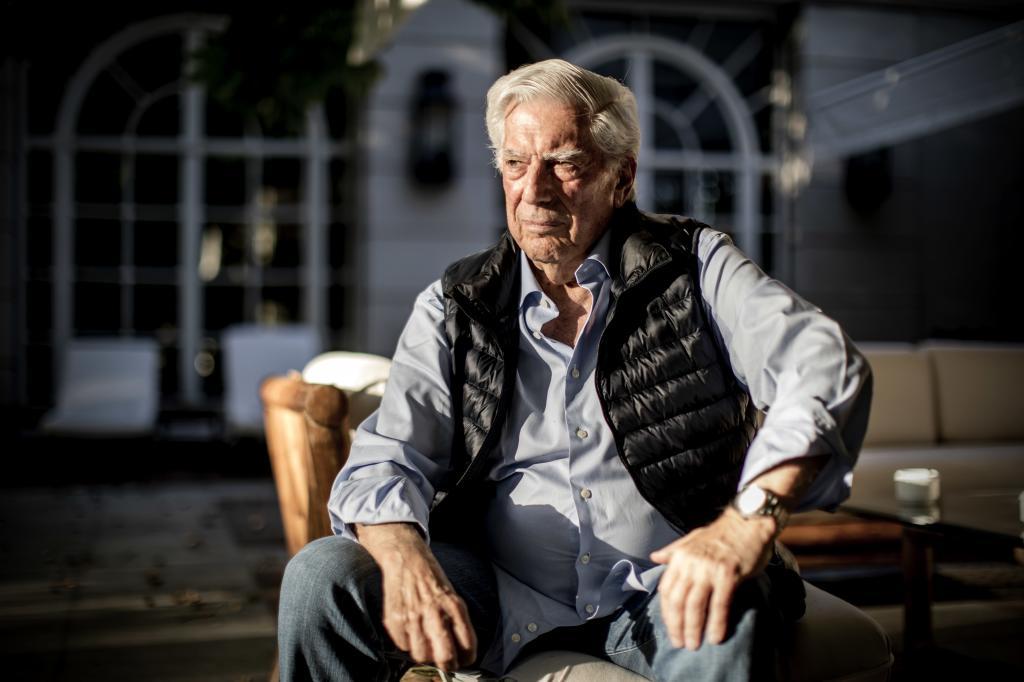- Interview.Vargas Llosa: "Spain and Latin America share a wonderful and thriving language"
The same award that appears in the list of such outstanding writers of the Spanish language as Manuel Longares, Luis Mateo Díez, Caballero Bonald or Antonio Soler, from today has the name of Mario Vargas Llosa .
This is the Francisco Umbral Award for the best novel of the year, which in its ninth edition has fallen on hard times (Alfaguara), a book that rescues the tone and characters of Conversation in La Catedral and La fiesta del Chivo to portray the convulsive reality of Guatemala in the mid-50s, when the CIA supported the military coup against Jacobo Árbenz. The conspiracies that nest in the heart of history alternate with fictional accounts to form a blunt denunciation of the excesses of Yankee imperialism that spread throughout Latin America during the worst years of the Cold War.
Convened by the Francisco Umbral Foundation for the promotion of culture and reading , the award was decided today after the jury's ruling chaired by Manuel Llorente, editor in chief of La Esfera de Papel , the Sunday culture supplement of EL MUNDO, and Carlos Aganzo, poet, director of Institutional Relations of El Norte de Castilla and deputy director of the Vocento Foundation; Juan Cruz, deputy director of El País ; César Antonio Molina, writer and former Minister of Culture; Fernando R. Lafuente, Editorial Secretary of the Revista de Occidente ; Fanny Rubio, writer and professor of Literature at UCM; and, finally, Santos Sanz Villanueva, critic and professor of Literature at UCM.
Hard times part of a fact that could have remained in anecdote but ended up redesigning the political and ideological map of the entire American continent, from north to south: how the United Fruit company, seeing its monopoly jeopardized before the agrarian reform of the Guatemalan president, pressed to the Eisenhower government to sponsor the military coup of Carlos Castillo Armas .
To do this, the anti-communism flag and a fake news factory were raised that pointed out Árbenz's alleged links with the USSR. In between, with his vigorous prose and constant digressions, Vargas Llosa slips memorable fictional characters like Marta Borrero, lover of Castillo Armas who, behind the victim's mask, hides his executioner status, or Johnny Abbes García, brutal dictator's henchman Dominican Trujillo, who already made his own in La fiesta del Chivo .
The Francisco Umbral Prize is the most recent milestone in the great career of Vargas Llosa (Arequipa, Peru, 1936), and joins the Nobel Prize for Literature he received in 2010, but also Cervantes, the Prince of Asturias of Letters and the Planet, among many other awards and distinctions.
After his beginnings as a journalist, the Spanish-Peruvian writer broke into the force of a cyclone in the publishing world with La ciudad y los perros (1963), with which he won the Short Library Award and the Critics Award, in addition to a legion of readers. Renewing the narrative architecture of the novel , it was one of the visible heads of the boom in Spanish-American literature thanks to works such as La casa verde , Pantaleón and the visitors or La tía Julia y el writing r.
In hard times , title that Vargas Llosa owes to Teresa de Jesus , a good part of the obsessions and recurring images of an especially skilled author appear in the mixture of genres and times and the combination of historical facts with a literary fable.
But, ultimately, what it is about is to black on white the denunciation of injustices and the demand for freedom , values that transcend the bibliography of the author of The War of the End of the World .
According to the criteria of The Trust Project
Know more- Mario Vargas Llosa
- José Manuel Rodríguez Uribes
- Peru
- culture
- literature
The Paper Sphere Ian McEwan, satire on the madness of Brexit
Books in the attraction to the madness of Millás
The Paper Sphere Antonio Pereira, the eagerness of every day and the job of telling it

